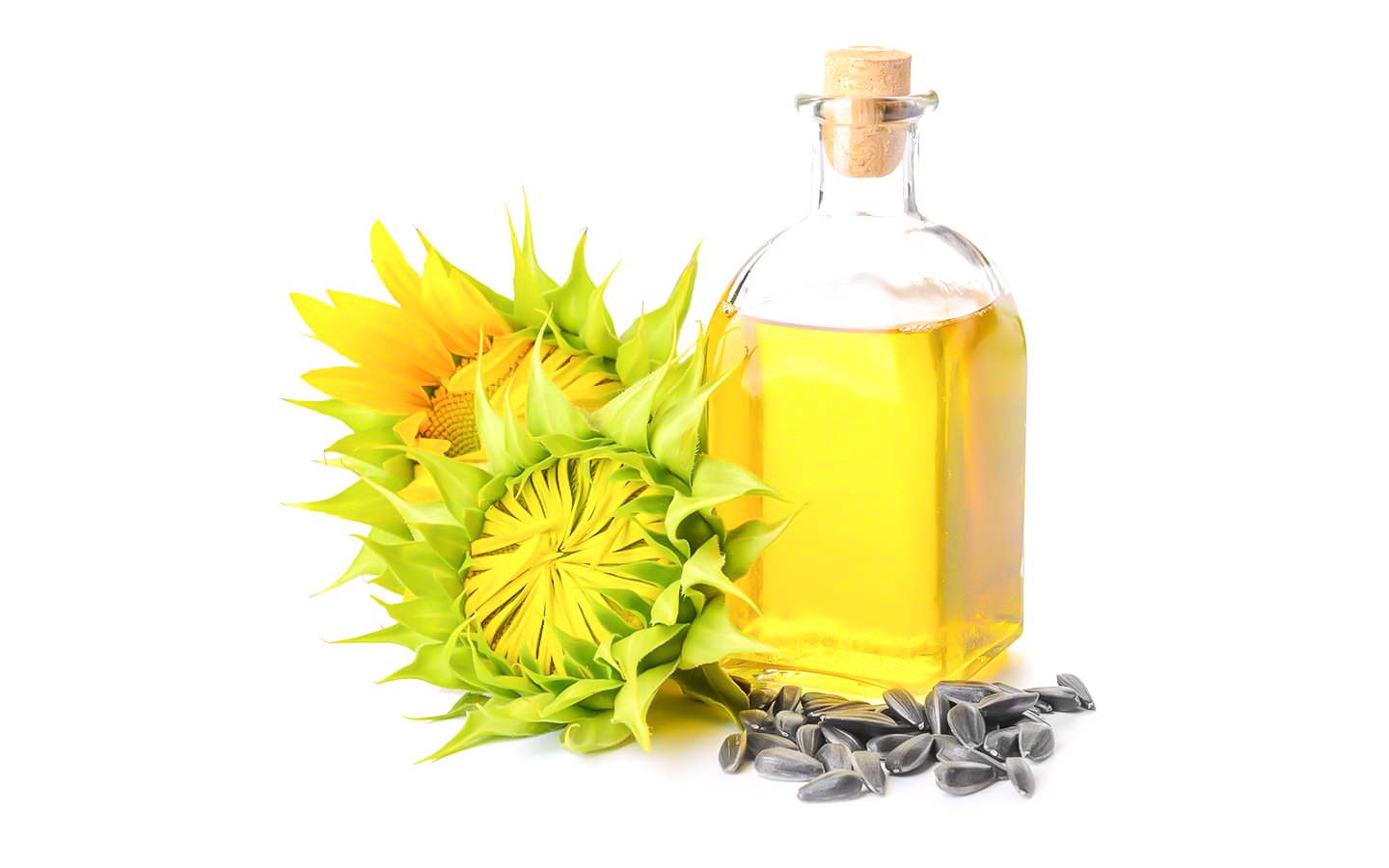

SUNFLOWER OIL-
What effect does the ingredient sunflower oil have on the skin?
Sunflower oil is a light and mildly caring ingredient. How sunflower oil works, which areas of application there are and how it is obtained, you will learn here.
Sunflower oil (INCI: Helianthus Annuus Oil, English: Sunflower Seed Oil) has antioxidant, anti-inflammatory and moisturizing properties. The oil is obtained from the ripe sunflower seeds, which are peeled, ground and then cold pressed.
Sunflower oil is a linoleic acid-rich oil with a relatively low content of saturated fatty acids. Its tocopherol content of 62 mg/100 g oil is only in the medium range, but consists mainly of the cell-protecting, cosmetically and physiologically antioxidant α-tocopherol.
Sunflower oil is skin nourishing and provides suppleness of the skin. In addition, the oil is perfuming.
While the vitamin E content of sunflower oil provides an antioxidant and anti-inflammatory effect that prevents premature skin aging, for example, the proportion of lecithin supports the hydrolipidic mantle of the skin.
Due to the high linoleic acid content and the relatively low proportion of saturated fatty acids, sunflower oil is a light, non-sticking and mildly nourishing oil.
Vegetable oils are generally characterized by a high proportion of (poly)unsaturated fatty acids, which are characteristic of the liquid consistency. Accompanying substances are mainly vitamins, carotenoids and free fatty acids.
Sunflower oil is indeed a universal ingredient. It is found in many dosage forms – from the classic use in food, in cleaning products, make-up removers and day creams to bath products.